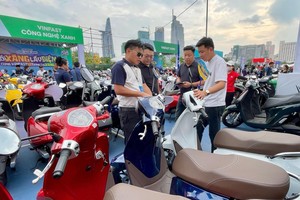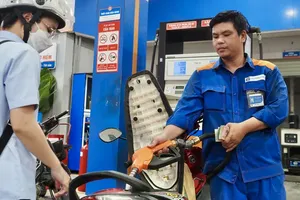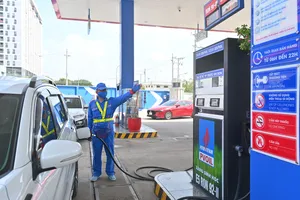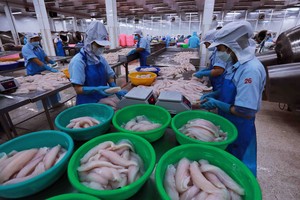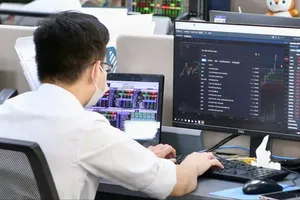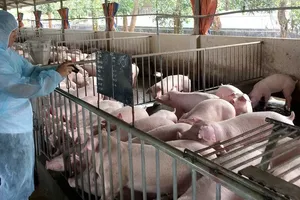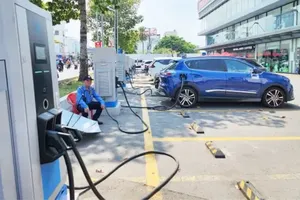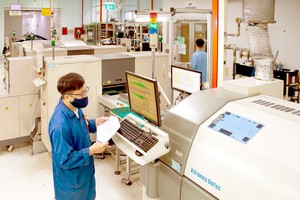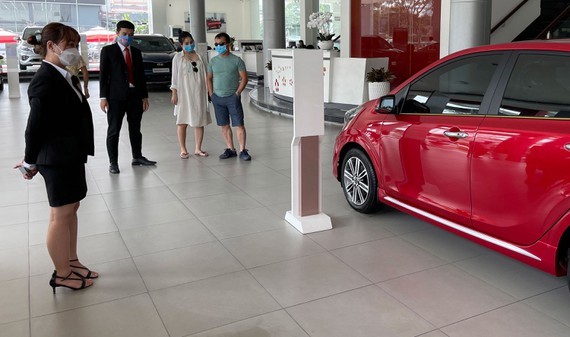 Buyers at an automobile shop (Photo: SGGP)
Buyers at an automobile shop (Photo: SGGP)
According to the information from the Vietnam Automobile Manufacturers Association (VAMA), vehicle sales of its member units in March 2022 reached 37,000 automobiles of all kinds, up 60 percent compared to the previous month. This is the first month of 2022, sales of VAMA member units have grown quite strongly, after decreasing continuously in January with 34 percent and 26 percent in February.
In the segments, passenger cars dominated the market with 28,491 vehicles, up 62 percent while there have been 7,794 commercial vehicles, up 63 percent, and 677 specialized vehicles, up 41 percent over the previous month.
Notably, vehicle lines of domestic origin reached 21,863 vehicles, up 50 percent and sales of imported complete units were 15,099 units, up 82 percent over the previous month.
According to a representative of VAMA, in the first three months of 2022, the majority of consumers have chosen to buy domestically assembled cars to enjoy incentives from a 50 percent reduction in registration fees under Decree 103/2021/ND-CP of the Government. government. This trend continues to increase strongly from now until the end of May 31, when the duration of the decree expires.
In terms of the reduced value, corresponding to the current fee, the cheapest locally assembled car model is the Kia Morning at the cost of VND302 million ( over US$13,000) and the most expensive is the Mercedes-Benz S 450 Luxury priced at VND4,969 billion. The price of wheelchairs is reduced by VND15 million-VND298 million respectively when customers buy a car during this time.
Although car buyers enjoy exemption of registration fees, in the first three months of 2022, most car manufacturers announced an average price increase of VND15 million-VND50 million per vehicle, depending on the type of vehicle; therefore, consumers have in fact not fully benefited from the decree.
Chairman of the Board of Directors of Xuyen A Automobile Service Co., Ltd (Tan Binh District, Ho Chi Minh City) Nguyen Xuan Huy said that up to this point, the store does not have cars to sell to customers, especially cars from the US market and Europe. Currently, the car models in these markets come to the company with prices increased by 20 percent-30 percent compared to before, but customers have to order a few months in advance to have the goods delivered.
Similarly, Mr. Ngo Thanh Tri, a sales representative of Ford, said that currently very few of the Explorer cars are imported from the US; so the selling price has been raised to about VND2,366 billion; however, customers who want to get the car soon must have to pay an additional amount of VND200 million. Likewise, Ford Everest cars imported from Thailand used to come back often, but now the quantity is also small.
According to industry experts’ analysis, many imported car models are still scarce in Vietnam due to various reasons, although there was a significant increase in March. One of the primary reasons is the limited supply in the vehicle-producing countries causing many dealers to raise the price of cars quite high compared to before.
The reason for shortage is explained by the lack of chips as well as the lack of components and spare parts. Before that, Ford had a policy of only producing the best-selling models. At the end of 2021, Ford Vietnam also sent a notice to distribution agents about the supply reduction of not only the Explorer model but also the Ranger model in November and December 2021 due to a shortage of production components.
According to the analysis of economist Nguyen Duc Minh Hai from the Vietnam National University in Ho Chi Minh City, the increase in car prices is believed to come from the impact of the Covid-19 pandemic by prolonging the crisis of lack of electronic chips and automotive components. In addition, the conflict between Russia and Ukraine along with China's blockade order in a number of major cities caused a disruption in the supply chain of auto parts, many factories had to cut output and even stop manufacturing.
